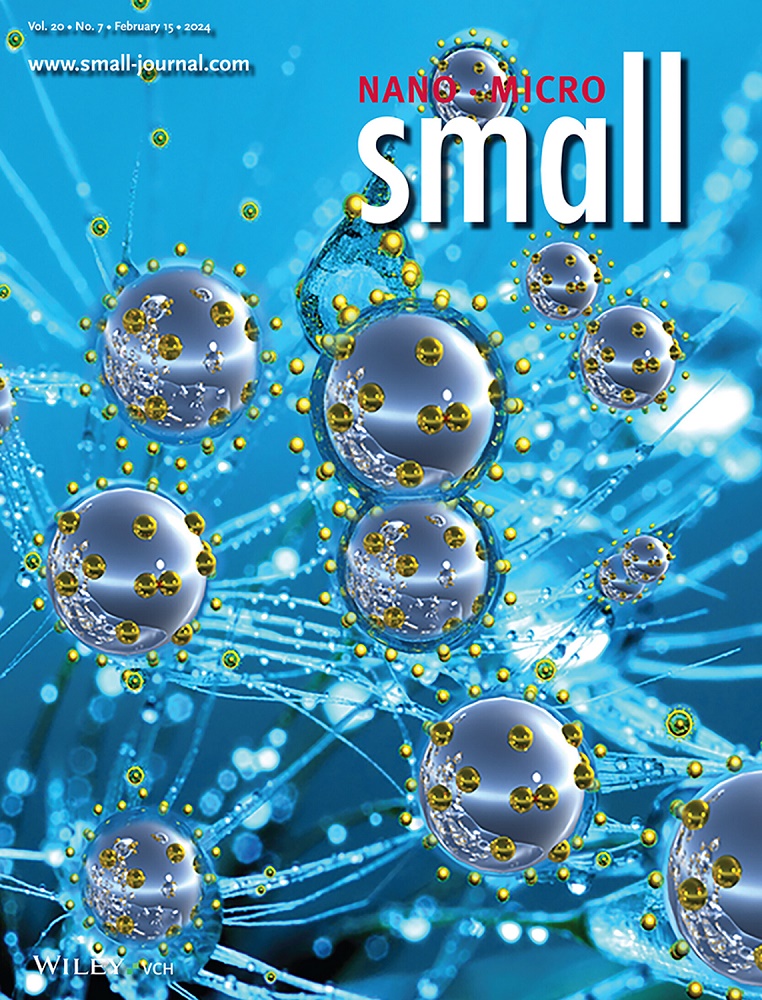Targeting Intratumoral Bacteria for Cancer Treatment
IF 13
2区 材料科学
Q1 CHEMISTRY, MULTIDISCIPLINARY
引用次数: 0
Abstract
Intratumoral bacteria have emerged as critical modulators of cancer biology and therapeutic outcomes. Substantial evidence has demonstrated that tumors harbor diverse bacterial communities capable of interacting with both cancer cells and host immunity to influence tumor progression and treatment responses. These bacteria adapt to the immunosuppressive, hypoxic, and acidic tumor microenvironment, leveraging these conditions to thrive. This review provides an overview of intratumoral bacteria, focusing on their origins, colonization mechanisms, detection methods, and roles in tumor development and metastasis. Furthermore, their dual impact on therapeutic efficacy is discussed, enhancing anti‐tumor immunity or conferring treatment resistance. Critically, emerging targeting strategies including engineered bacteria design, vaccine strategies, oncolytic therapy, antibiotics mediated nano strategies, and regulating intratumoral bacteria abundance are also discussed. Despite translational promise, key challenges remain in safety validation, targeting precision, and deciphering complex bacteria‐tumor–immune crosstalk. By elucidating the multifaceted biology of intratumoral bacteria, the review aims to accelerate clinical translation and inspire innovative cancer therapeutics.靶向肿瘤内细菌治疗癌症
肿瘤内细菌已成为癌症生物学和治疗结果的关键调节剂。大量证据表明,肿瘤中存在多种细菌群落,这些细菌群落能够与癌细胞和宿主免疫相互作用,从而影响肿瘤的进展和治疗反应。这些细菌适应免疫抑制、缺氧和酸性肿瘤微环境,利用这些条件茁壮成长。本文综述了肿瘤内细菌的起源、定植机制、检测方法以及在肿瘤发展和转移中的作用。此外,还讨论了它们对治疗效果的双重影响,增强抗肿瘤免疫或赋予治疗抗性。关键的是,新兴的靶向策略,包括工程细菌设计,疫苗策略,溶瘤治疗,抗生素介导的纳米策略,以及调节肿瘤内细菌丰度也进行了讨论。尽管翻译前景看好,但在安全性验证、靶向精度和破译复杂的细菌-肿瘤-免疫串扰方面仍存在关键挑战。通过阐明肿瘤内细菌的多方面生物学,综述旨在加速临床转化和激发创新的癌症治疗方法。
本文章由计算机程序翻译,如有差异,请以英文原文为准。
求助全文
约1分钟内获得全文
求助全文
来源期刊

Small
工程技术-材料科学:综合
CiteScore
17.70
自引率
3.80%
发文量
1830
审稿时长
2.1 months
期刊介绍:
Small serves as an exceptional platform for both experimental and theoretical studies in fundamental and applied interdisciplinary research at the nano- and microscale. The journal offers a compelling mix of peer-reviewed Research Articles, Reviews, Perspectives, and Comments.
With a remarkable 2022 Journal Impact Factor of 13.3 (Journal Citation Reports from Clarivate Analytics, 2023), Small remains among the top multidisciplinary journals, covering a wide range of topics at the interface of materials science, chemistry, physics, engineering, medicine, and biology.
Small's readership includes biochemists, biologists, biomedical scientists, chemists, engineers, information technologists, materials scientists, physicists, and theoreticians alike.
 求助内容:
求助内容: 应助结果提醒方式:
应助结果提醒方式:


